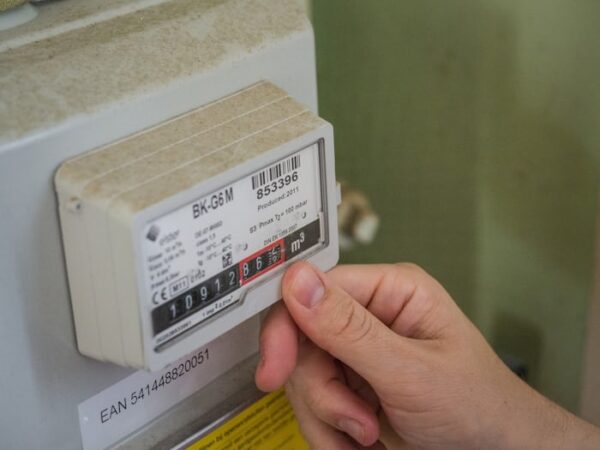Last updated May. 7, 2024 by Jessica Green
With the inflation rate growing high, it’s high time you reevaluate your spending habits and look for ways to live on a more tight budget.
But to live on a tight budget, you must develop good money habits, learn how to cut down on expenses, and spend wisely. If you’re clueless about this, this article provides twenty-nine ways that help.
Here are great finance tips on how to cut down on costs, spend wisely, and save more money.
How To Cut Down On Costs
To live on a tight budget, you must first get rid of or cut down on expenses that handicap your income. Here are a few ways to cut down on expenses.
1. Track Your Expenses
In order to cut down on costs and live on a tight budget, you first need to understand the expenses that cause you to spend beyond your budget. And one of the ways to know this is by tracking your expenses.
Review expenses made between 30 to 60 days to get a good insight into your spending habits. Once you do this, you’ll be surprised at how much you spend on certain things.
One good way to track expenses is by listing out all the things you spend monthly. However, this can be long and tiring. So it is often recommended to request an account statement from your bank. If you often use cash, review your receipts.
2. Make A Budget
During the process of creating a budget, you’ll gain consciousness of your financial situation and will be less likely to engage in overspending. Thus, a budget acts as an eyeopener and a guide
Creating a budget is very easy. All you have to do is make a detailed plan on where your money should go. The budgeting rule you use to accomplish this does not matter. All that matters is that you control your finances wisely.
Budgeting is a crucial way to cut down on costs and live on a tight budget. Once you make a detailed plan on how to spend your money, you’ll naturally be forced to cut off certain expenses. And by doing so, you will be able to live on a small budget.
Here’s a simple guide on how to make a budget:
Calculate your net income
List out all your expenses
Categorize your expenses into necessities, non-necessities, savings, and debts. From this, you can know what expenses to cut out.
Set realistic goals
Allocate finances to expenses in a way that aligns with your goals
Adjust and review your budget regularly
If you need a simplified way on how to budget your finances, use budgeting apps.
3. Eat At Home

Eating at a restaurant once or twice a month is fine and may not put a strain on your finances. However, if you depend on eating out all the time, your tight budget may not be enough to accommodate the weight of expenses.
So one way to cut down on expenses and live on a tight budget is by preparing your meals.
Contrary to what you think, preparing meals at home is cheaper and healthy.
Make a weekly plan on what you want to eat, and go grocery shopping. There are tons of discounts available for groceries so take advantage of them.
Do not waste food. If you cannot finish a portion, save it for later.
Another Interesting Article: How Much Should I Budget For Food?
4. Cancel Unnecessary Subscriptions
Subscriptions to cable TVs and streaming services are secret consumers of your income. The cost of subscribing to a service may seem cheap, but when the cost is added to other services you subscribe to, it turns into a huge amount that could be used to finance important expenses.
Review your bank statement to get a list of services you subscribe to. Then ask yourself the following questions as you review each subscription.
Do I really need this service?
Is there a cheaper plan for this service?
Are there platforms/businesses that offer this service for free without a subscription?
How much do I use this?
Can I live without this?
Once you decide to unsubscribe from a service, go through your email and unsubscribe from their newsletters and ads.
Some paid services to unsubscribe from include:
Cable TV
Streaming services
Publications
Cell plan
Internet
Weight loss programs
5. Check Eligibility For Food Assistance Program
If you cannot afford to buy food items and groceries, you can apply for the federal SNAP program to get an EBT card that can be used to purchase groceries – this lessens your financial burden and enables you to cope with the tight budget you have.
To qualify for the SNAP program, you must meet certain requirements which include resource and income limits.
To get started, apply for the SNAP program in the state you reside in since different states have different requirements 0for qualification. Once you qualify for the program, you’ll be notified of how long the benefits last.
6. Cut Down On Housing Costs
According to research, an average American spends about 30% of their income on rent or mortgage which leaves you with 70% for necessities, debt repayment, non-necessities, and emergencies – this is not enough if you live on a tight budget.
So first, cut down on your housing costs. Here are some ways to do that:
Find a roommate
Rent out your free space
Move to a cheaper place
Appeal for reduction of property tax
Lower your monthly mortgage payments
7. Shop With A List
Being mindful of your grocery list can help you cut down on costs and live on a tight budget. So avoid buying unnecessary items and stick to what’s important.
However, it’s often difficult to stick to what you need. During grocery shopping, you can be tempted to add items that are not on your budget. One way to go around this problem is by shopping with a list.
Make an initial shopping list of everything you need. Then review it and remove items that you cannot afford.
Calculate the total amount of items on the list, and take the exact amount with you as you go shopping – this prevents impulse buying.
Here are additional tips to help you during grocery shopping:
Compare prices in two to three stores before making a purchase
Make a running list and review it frequently to spot items that disguise themselves as a necessity
Keep an eye out for reward programs by stores, coupons, and discounts
8. Review Your Electricity Bills

Utility bills are one of the reasons why you live on a tight budget. Oftentimes, they take up 10% to 15% of your income.
However, you can reduce this bill by reviewing your electricity usage. Here are some ways to cut down on electricity bills:
Hang out your clothes instead of using dryers
Insulate your walls
Wash clothes with cold water
Reduce your water heater
Be mindful of the light bulbs you use
Switch off computers when not in use
Turn off light bulbs when not in use
Turn down your thermostat
9. Freeze Your Credit Card
If your tight budget forces you to use your credit card often, it’s time you stopped.
Credit card debts are scary. They have the power to drag you into a financial hole. So, the earlier you put an end to it, the better for you.
One of the best ways to avoid spending with a credit card is to freeze the card. A credit freeze places restrictions on your account and prevents it from being used.
To freeze a credit card, log into your issuer’s app and find the ‘freeze menu’ to activate.
10. Use Coupons
Coupons are great for cutting costs, so take advantage of them. With coupons, you pay less for items you intend to purchase.
Tips For Spending Money Wisely
If you live on a tight budget, you need to learn how to spend your money wisely. Here are great tips to help you:
11. Stop Trying To Impress
Most people have problems living on a tight budget due to pressure and influence from the media they consume and the people around them.
If you’re trying to survive on your little income, you need to learn how to spend money wisely. To do this, stop being influenced by celebrity lifestyle. Purchase things you need and not things that you think you need.
Go for generic brands, do not get pressured into buying an item, and live on your own terms.
12. Control Of Your Impulse

If you’re irrational in the way you spend money, you’ll find it difficult to live on a tight budget. So work on your impulse to buy things.
Here are ways to avoid impulse buying:
A. Make a shopping list before any purchase. If you shop without a purpose, you’ll end up buying things you do not need. A shopping list lays out a clear plan and gives you insight into the amount you have and the items you need.
B. Reflect before buying: Oftentimes, it is advisable to take two to three days to reflect on things you want to buy. During the reflection period, here are questions to ask yourself:
Do I need this item or do I want it?
Can I afford it without putting a strain on my income
What benefit does this item bring to me
C. Wait at least 24 hours before making a purchase. If you give yourself enough time to think about a purchase, you’ll lose the urge to spend your money.
13. Set Financial Goals
Having a financial goal can help you live through a tight budget. It keeps you focused and free from distractions.
Regardless of your financial situation, it is important to make a financial goal. This is because the process of creating a goal gives you insight into your priorities. And once you realize your priorities, you’ll tend to spend less.
14. Adopt A Budgeting Rule
A budgeting rule is a rule that directs you on how to properly manage any inflow of money.
If you’re on a tight budget, find a rule that works well in your situation.
There are tons of budgeting rules to consider, here are a few of them:
- 50-30-20 Budgeting Rule: This rule recommends allocating 50% of your income to necessities, 30% to non-necessities, and 20% to debt or savings.
- 30-30-30-10 Budgeting Rule: This is a strict budgeting rule and is suitable for people with a strict and tight budget. It allocates 30% of income to housing costs, 30% to needs, 30% to
- Zero-based budgeting: This is a budgeting method where you allocate a role to every dollar in your income until the last zero. In other words, every expense you make has to be justified.
- Envelope Method: Get different envelopes for different spending categories, and put money into them.
15. Give Your Money A Purpose
Most people who overspend lack purpose and financial awareness.
When you create a purpose for a sum of money, you’re less likely to spend it on unnecessary things. So if you want to spend money wisely due to your tight budget, give your money a purpose.
Once you receive your income and pay off bills and debts, specify the leftover income. Afterward, write out what you want to do with the leftover income. Doing this enables you to stay within your budget.
16. Limit Payment Options

Having multiple payment options makes spending effortless which is good for sellers who want to prey on the recklessness of customers. But as someone on a tight budget, do not fall victim to this.
Stick to using one or two bank cards for all your purchases and transactions – this also enables you to keep track of your spending.
Additionally, remove your payment methods from apps and shopping sites that you frequently use. Also avoid ‘buy now, pay later’ as it is one of the ways sellers trick you into spending.
17. Figure Out Habits and Change Them
Your living and spending habits determine how well you live on a certain budget. If you’re all about the celebrity lifestyle and love to keep tabs on the latest brand items, there’s a high chance you’ll spend your money on those things. Similarly, if you keep up with financial experts, you’ll be more focused on elevating your financial position.
In other words, understand what your habits and hobbies are, and change them if they put a strain on your finances.
Rather than buy the latest fashion item, go for a secondhand. If you love eating out, consider home meals, and conduct exercises at home rather than pay for gym membership.
18. Avoid Credit Cards
Credit cards offer convenience. They allow you to pay for things you cannot afford at the moment. But while this is good, it can easily backfire on you.
Once you use a credit card, you’ll get tempted into using it frequently which can lead to overspending and increased debt amount.
As someone on a tight budget, you cannot afford to be in debt. So overall, it is advisable to avoid using credit cards.
Only use a credit card when you can afford to pay it off each month.
How To Save Money
Your financial situation is precarious if you’re always on a tight budget. To provide a safety net in the case of emergencies, you must know how to save.

19. Automate Your Finances
Finance automation prevents overspending and allows you to save money even on a tight budget.
One of the reasons most people struggle to live on a tight budget is that they lack knowledge of finance management. If you manage your finances properly by automating your bill withdrawal and savings deposit, you are less likely to fall into debt.
Before automating your finances, study your budget and be clear on how much can be saved each month.
Another Interesting Article: How to Set Up Automatic Savings and Put Your Savings Money on Autopilot
20. Buy In Bulk
When you buy items in large quantities, the cost per unit of the item is reduced. Thus, bulk buying is a good way to save money and stay on budget. It also reduces your number of trips to the store.
Here are some tips to adopt if you intend to engage in bulk buying:
Compare prices of bulk items in different online and physical stores to get the best deals
If you’re a big eater and lack self-control, avoid buying food items in bulk
Note, that if you can’t afford to buy items in bulk, find a friend or family member to split costs.
21. Buy Generic Brands
Most brand or celebrity-endorsed items are expensive. And as someone on a tight budget, do well to avoid them.
If you plan on getting new clothing items, go for quality generic brands since they’re way cheaper. This also applies to food and grocery items. For example, generic grocery items like milk, baking soda, cooking oil, spices, and flour are cheaper than their name-brand counterparts.
Also, consider buying secondhand products. Most used appliance or furniture allows you to save over 50% per item.
22. Use Cashback On All Items
Individual cashback rewards may seem small and insignificant, but when summed up can help you settle a bill or two.
Here are a few tips on how to get cashback on almost all items:
Use a credit card. Most credit cards allow you to enjoy cashback on all items.
Use cashback websites like Quidco or TopCashBack for UK residents and Swagbucks or Checkout 51 for U.S.
Register for a retailer’s reward credit card for cashback. E.g. Kohl, BestBuy, Amazon, Macy’s, and more.
23. Lower Car Costs
If you’re on a tight budget and need to save money, pay attention to your transportation expenses – it takes up a good percentage of your monthly income. So find ways to reduce the amount you spend on transportation.
If you own a personal car, you can reduce expenses on gas with carpooling. Consider splitting the cost of fuel with friends, family members, or neighbors. You can also register on ride-sharing apps.
Keeping your car in good condition also optimizes your fuel usage and reduces the amount spent on maintenance.
If you can’t keep up with your car expenses, consider public transportation.
24. Switch Cell Phone Plan
Cell phone and cable bills are negotiable. So do not settle for a subscription plan until you’re getting the best deal at a cheap price.
To negotiate a cell phone plan, contact the company that offers the plan, and request rewards, discounts, or special offers. You can also check around for other companies that offer cheaper plans.
Apps like RocketMoney and Trim can help you negotiate subscription plans.
25. Save in a High Yield Account
As someone on a tight budget, you need a business or investment that multiplies your income. But if you’re not a risk taker and prefer saving money, go for a high-interest savings account.
A high-yield savings account allows you to gain daily interest on the amount you deposit – this is a good way to increase the little amounts you set aside for savings.
26. Join Event For Free Items

Joining events for freebies is a good way to save money when living on a tight budget.
There are tons of free items available on Craigslist and there are websites dedicated to giving out freebies. Here are links to how you can get free items.
- 9 Legit Ways to Get Free Toys
- 25 Awesome Apps For Free Food [With Bonuses]
- 10 Legit Ways to Get Free Gas
- 12 Legit Ways to Get Free Laptops
- 15 Legit Ways to Live Rent Free
- 8 Legit Ways to Get Free Cable (And Cheap Options)
- 11 Legit Ways to Get Free Diapers
27. Have a No-spend Weekend
It is one thing to create a budget, and it is another thing to stick to it. If you’re having problems committing to a goal or budget, try the no-spend weekend challenge.
Create a challenge where you do not spend an entire weekend. Do this with friends or a family member to stay motivated. Rather than eat out, cook for yourself. And avoid going out with friends in order not to make an out-of-budget expense.
28. Use Gas Price Comparison Apps
To avoid wasting money on gas, use gas price comparison apps to locate gas stations with the cheapest gas prices. Most apps also allow you to collect rewards.
Related: 12 Best Apps to Find Cheap Gas Near Me
29. Download Budgeting Apps
Budgeting Apps make budgeting fun and easy. So if you’re having problems creating a budget, use an app.
There are multiple budgeting apps available on the internet, and each of them caters to different needs. If you’re on a tight budget, and can’t decide on how to spend your money, apps like YNAB will track your transaction history and make a budget plan for you.
If you plan on saving money even with a small budget, use the STASH or Mint budgeting app. And if you want to make the best out of your income, go for GoodBudget or EveryDollar app.
The Rocket Money app is best for managing subscriptions and HoneyDue is best for couple budgeting.
Final Thoughts
Being on a tight budget shouldn’t stop you from living your life to the fullest. Take budgeting seriously and follow the tips in this article to live a comfortable and debt-free life.



